How to Start a Quaker Nonprofit
For the final episode of Season 1, we’re taking a peek behind the curtain of Thee Quaker Project — from inspiration to realization. If you love a good origin story or you’ve got a big idea that you want to turn into a reality, this is the episode for you.
Help us shape Season 2 by taking our survey.
Subscribe so you don’t miss an episode!
After you listen, tell us what you thought of this episode in the comments below!
Download the transcript and discussion questions.
Discussion Questions
- Is there an idea that has been on your heart? What steps can you take to move toward discerning your next step in pursuing that leading?
- Jon says, “One of the essential parts of this vision from the very beginning was that it couldn’t just be me.” In what way can you come alongside a F/friend to support their vision?
Georgia Sparling
On the first episode of the podcast, we started out with silence. In that instance, it was to illustrate how different a traditional, unprogrammed, silent meeting was compared to that of a more boisterous branch of Friends — the evangelical Kenyan Quakers.
Today, it’s in preparation to discuss Jon’s calling and the vision of the organization of which this podcast is a part. This is also the way we begin many of our meetings here at Thee Quaker Project.
Jon Watts
Do you think we could have like a little bit of worship to get us started? Great
Georgia
Sure.
Various
Thee Quaker Podcast: Story, spirit, sound
Georgia
I’m Georgia
Jon
I’m Jon Watts
Georgia
And this is the last episode of Thee Quaker Podcast Season 1.
Jon
That’s right! It’s been a good run. We can’t wait to go back to the drawing board and start dreaming about Season 2. We’re so grateful to everyone who has tuned in and especially to those of you who have reached out with comments and feedback about how the podcast has impacted your spiritual journey.
Georgia
Even though it’s been a lot of work, it doesn’t feel like the first episode was as long ago as May.
Jon
Time flies when you’re having fun?
Georgia
And when you have a lot of deadlines. At the end of the show, we’ll talk more about what happens in between seasons 1 and 2, but I want to get into this episode about how Thee Quaker Project actually started. We’re ending with the beginning.
Jon
Yes, well you are. You’ve been working hard on this episode for the past couple of weeks… interviewing board members, donors, and my wife Jess–and other than our conversation, I haven’t heard any of it yet! So I’m looking forward to seeing this story unfold, Georgia-style.
Georgia
Yeah. It’s been a great experience to hear from folks who pre-date my involvement with the organization and to learn how they really caught the vision early on.
Jon
Yeah tell me a little about how you’ve approached this episode?
Georgia
With some guidance from you, I called up folks who were instrumental in the early days of Thee Quaker and asked them about the part they played in the early days, what they thought about it then, what they think about it now. That kind of stuff.
Jon
That’s great. One thing I’ve learned about getting something like this going is… it takes a village. There have been so many talented Friends who have been involved from the beginning, and lent their wisdom and expertise to getting us this far.
Georgia
I was only able to speak to a fraction of those people, but today we’ll take you behind the scenes a bit and explore what it takes to start a nonprofit.
Jon
Nice. I do get a lot of questions about how to get something like this up and running… and it’s rare that we get to tell the story when it’s so fresh.
Georgia
Right. I think that this is a really helpful episode for anyone who has ever thought about starting anything or questioned whether to follow a leading.
Jon
Great. We hope this can be a resource for anyone who is considering starting their own project, or if you’re just thinking about the state of modern Quakerism – and how this model, the 501(c)(3) fits into that.
Georgia
And it won’t exactly be a primer but we hope it’s a helpful peek into the human story of this nonprofit Quaker start up. So let’s get started.
Jon
Yes, let’s.
Georgia
Working for a startup is intimidating. Hm, not for the feint of heart. On the one hand, you get to start on the ground floor, help shape new systems. On the other hand, there are no systems…Everyone is on a steep learning curve. Everyone is doing things that are outside of their strengths. It’s frustrating to feel out of your depth… a lot.
If you’re not going to quit immediately, there is one thing you unequivocally need — vision.
Holly Baldwin
So my name is Holly Baldwin. I’m a spiritual director or spiritual companion.
My connection with Thee Quaker Project is I am the clerk of the board and one of the founding board members.
Georgia
And that’s where we’re going to start today: vision. To get a startup off the ground, it’s got to start with an idea. One that captivates people’s imaginations and answers a clear need.
Holly
Jon called me up said he had a project he wanted to talk to me about and shared his ideas and his enthusiasm. And he talked about storytelling and that really connected with me a lot because I love storytelling. I was raised by two storytellers. It just reaches me in a deep place.
But more than that, I mean, storytelling is nice and good. But the other thing that really grabbed me about the project is I’m the kind of Quaker that orients to experiments and new things. So I really resonate with the passage from Isaiah. Look, I’m doing a new thing. Can’t you see it? I’m making a way in the desert and I don’t mean to call.
And I don’t mean to call traditional Quaker spaces a desert, but I’m the kind of person that always hungers for, ooh, what if we could go a little bit deeper? What if we could awaken a stronger sense of the spirit in each other? And what would happen if we listened and…listened for how the Spirit was moving among us and especially in Quaker spaces and the way Jon described, you know, this project, it sounded to me like an experiment that might help Quakers think differently about how we do Quakerism.
Jon
We’re living through some really challenging times and some really tumultuous times and lots of Quakers and other people listening to this are probably asking themselves, you know, what does the world need from me right now? What does the world need from Quakers right now?
Georgia
That’s Jon Watts, who you already know. But he’s stepping out of his hosting role here to answer some questions about why he started Thee Quaker Project.
Jon
And ultimately, what we’re doing here is not about an organization, it’s not about articles of incorporation and bylaws and personnel handbooks. It’s about showing up in a faithful way in the world. It’s about doing this work.
Georgia
But why this particular work? Media. Podcasts, eventually newsletters and videos, daily reflections. Things on the internet.
Jon
Quakers believe in the possibility of peace on Earth. And the kingdom of God or the kingdom of heaven or the peaceable kingdom or the beloved community, you know, pick your language for the vision. It’s like a world in which we are no longer at war with one another. We are connected, we’re working together, we’re honoring one another.
And Quakers all have a different approach to taking the next step forward in trying to realize that vision. But from the very beginning, we’ve understood as a religious society that it’s going to take struggle.
There’s a lot of brokenness. There’s a lot of trauma.
In the early days of Quakerism, that manifested in public preaching on the streets and public signs trying to shake people out of their complacency with the broken world and printing and pamphlets.
When I think about the sort of next era of humanity and life on Earth, there’s a lot to be concerned about. We haven’t entered the Peaceful Kingdom, the Beloved Community.
Jon
And when I search my heart, as most Quakers have done, about where I feel called and what the work is that I can do. I look at this new communication technology of internet media and social media.
And I see that that’s where the opportunity is happening to lift up these messages and to build a platform that plants the seeds of peace that establishes the concepts that are going to foment the struggle in our hearts between brokenness and healing, between peace and violence.
Georgia
Jon spent years working on a Quaker video project — many of you know it. It’s called Quaker Speak, and during that time, he started to get restless. He loved sitting with others and asking them searching, spiritual questions and then creating these videos that could ignite discussion and faith-filled responses with thousands of people. People he might never even meet in person.
Jon
And I imagined what it would look like to have a whole ecosystem of projects that are all grounded in this idea of courageous faithfulness, of internet media as ministry. What is a bigger vision for this look like?
Hannah Mayer
Oh God, I was stoked.
Georgia
That’s Hannah Mayer, our operations coordinator and also a long-time friend of Jon’s.
Hannah
I was similarly stoked about QuakerSpeak because it just felt like such a clear and present need in the Religious Society of Friends. And it was exactly the same feeling with Thee Quaker Project, like, yes. There is a need and what you’re talking about is gonna fill that need really beautifully.
Georgia
Starting something new has a real life impact for everyone in the orbit of a startup. There are risks and unknowns, so I wanted to zoom in on some of the personal impacts for a second. In 2019, Jon quit his job to focus on this fledgling idea of a Quaker media nonprofit.
Jess Horton
We were very much a startup relationship at the time.
Georgia
That’s Jess Horton.
Jess
I’m an art historian. I work in the Indigenous Studies field at a university. And I am the wife of Jon Watts, which I think is relevant to our conversation today.
Georgia
Jon and Jess were not very far into their relationship when he decided to go all in on Thee Quaker Project.
Jess
You know, there was no Thee Quaker when we met in 2019, but we had a long six mile walk on the Schuylkill River on our first date talking about all the things, values and dreams and where we saw ourselves in our lives and where we were going. And I feel like the seeds were there.
And it was really only six, seven months later that Jon made the kind of big decision to leave his job at Friends Journal, where he was directing the Quaker Speak video series so that was a lot in the first year of our getting to know each other, but it was also a really exciting time to enter each other’s lives because then you become part of the growth process, right? You start to be able to embolden one another to take bold leaps and do courageous things.
Georgia
Jon had a clearness committee in 2021 with fellow Quakers to inquire if he should move ahead with his leading.
Jon
And throughout that discernment process, it became so clear to me that this is my piece. that I feel so strongly and see so clearly a great people gathered through powerful real world ministries and conversations that we bring to these online platforms. Yeah, so that’s what I’ve devoted my life to. I think it’s where I’m supposed to be.
Georgia
That’s great and all, but everyone has had an amazing idea. Making it happen is a whole other story. So, what does it take to actually start a nonprofit? Let’s get really practical for a second.
Jon
And at every step of the way, there is some major hurdle that I did not anticipate.
Georgia
The first hurdle — a 40-page application written in legalese.
Jon
Just to get this thing off the ground, just to give you a taste here, in order to start a nonprofit organization, you need to file articles of incorporation. That’s actually pretty simple. Anyone can go online and file articles of incorporation.
But then in order to actually become a 501c3, in order to become a nonprofit, you need to fill out a huge form that’s called a 1023.
And when I first looked online, I was like, okay, we filed the articles of incorporation, great. I’m like, okay, I’m good at this. I’ve filled out one online form and now it seems like we’re a thing. And then I looked at the 1023 and it was 40 pages long and I didn’t understand the first page.
And I was just like, this is never going to happen. However, you know, Quakers have this concept of way opens. That when you’re on the faithful path and you just trust and wait that the way will open and I experienced that.
Georgia
Jon had begun to travel, meeting with potential partners, sharing this ministry idea.
Jon
And I didn’t know if I was fundraising or if I was recruiting for the board or what. I was just like, I know that I can’t do this alone. I was at a meeting just sort of sharing about the idea and someone came forward and said, you know, I probably can’t give a lot to your fundraising campaign, but I am a nonprofit tax attorney and I’ll file all your paperwork for you. And I cried.
Georgia
But actually getting 501c3 status requires a pledge of donations and to get a pledge of donations one needs 501c3 status. This is the definition of a catch-22.
Jon was able to get a grant, with the understanding that he had four months to solidify the organization’s nonprofit status.
Jon
And so we really quickly applied for the 1023 and they said, okay, great. It’s going to be eight to 12 months before we give you your 501c3. So it was like, well we’re going to lose the grant and the 501c3 status.
Georgia
But surprisingly, it didn’t take 8 months or even eight weeks.
Jon
It took 30 days.
Georgia
If you’ve ever encountered the U.S. federal government, you know how remarkable that is.
Jon
So it’s been, it’s been, it’s been a journey of, of faith and grace and small miracles at every corner.
Georgia
Before the podcast actually launched, it took two and a half years of filing paperwork, traveling the country to meet potential donors, establishing a board, hiring a podcast producer — that’s me —
Jon
Those two and a half years were challenging for me because it was so plodding. You know, like, I was talking about this big vision for what the future of Quakerism could look like and not just the future of Quakerism, but the future of the human species. What does it look like for us as a species to take the next step in the direction of the kingdom of God or the beloved community? And how do we do that in the age of the internet? And, you know, there’s some urgency around that goal and that mission. And here I am, you know, like filling out paperwork for two years. It was hard to keep my eye on the ball and to keep that target in mind.
Georgia
So Jon has established the organization, but he hasn’t really gotten to the hard part yet. After the break, what is at stake when you start a nonprofit with no nonprofit experience?
Holly
How did you discover this podcast?
Fritz Weiss
What was your favorite episode this season?
Traci
Has this podcast impacted your faith journey?
Naveed Moeed
What topics would you like to see us cover in future episodes?
Jon
Dear listener, this is our final episode of season 1. We hope you’ve enjoyed these 20 episodes as much as we’ve enjoyed making them. And as we head into our brainstorming session for season 2, we want to hear from you. What were your highlights and lowlights over these last 6 months, and where would you like to see us take this show in the future?
Please head over to QuakerPodcast.com/survey to answer these questions, and help us make Season 2 even better.
And quick reminder… we’re about to send out a thank you gift to anyone who supported us in Season 1. And it’s not too late! If you visit QuakerPodcast.com and click support, it will take you to our patreon, where you can still sign up for a monthly donation and get a thank you gift in the mail. Georgia and Hannah have been working hard on it… Just a hint, it can carry your groceries and it’s got artwork from the Nayler episode on it!
But if you do one thing and one thing only, please fill out the survey. It really would mean so much for us to hear from you. QuakerPodcast.com/survey or you can just go to the site and you’ll see a button, and we’ll put that link in the show notes.
Thanks so much.
Georgia
Welcome back. Before the break, Jon had followed his leading to start Thee Quaker Project. And then he’d gotten tangled up in a bunch of red tape, survived, and now he is the official founder of a government-recognized nonprofit…but it has almost no money.
Georgia
Great. So do you remember how you first met Jon?
Arthur Larrabee
I do.
Georgia
That’s Arthur Larrabee. He and Jon are part of the same meeting — Central Philadelphia — and he appeared in a few of Jon’s QuakerSpeak videos.
Arthur
The first personal encounter that I had with Jon was when I was general secretary of Philadelphia Yearly Meeting. And I was under some pressure as general secretary and during a break, Jon, whom I didn’t know that well, came up the side steps of the facing benches and gave me this incredibly wonderful hug. And so I remember Jon just sensing the pressure that I was under and offering the solace of a personal connection. And that endeared me then and continues to endear me to Jon.
Georgia
In late summer of 2021, Jon and Arthur met up on a bench in a Philadelphia park for one of Jon’s first “asks” — which is nonprofit speak for a fundraising meeting. They were outside because…COVID.
Arthur
It was then that Jon told me about Thee Quaker Project. I didn’t like the name very much….
Georgia
Arthur may not have liked the name, but he liked Jon’s vision.
Arthur
I kind of suspected that Jon was, um, was, um, wanting to ask me for money, but hadn’t gotten to it quite yet. And I say that in a very sweet way. I mean, he handled it very well.
And I remember saying something like, Well, Jon, I suppose you’re going to need some money. I suppose you’re going to need some money for this project…
And I said, I don’t have a lot of money, but I volunteered to put in $5,000 into this project at the beginning.
Jon
I have to admit, I’m really awkward talking about money and specifically asking even for something that I really believe in. It’s a new muscle. And, you know, I’ve had people say like, oh, you didn’t ask me for enough, or you need to ask for something more specific. And I’ve had couples turn to each other and say, no, Jon, you’re messing this up, let me do it for you. And then ask their spouse for more money than I would have felt comfortable asking for.
Georgia
Jon needed to raise $215,000 — from individual donors and grants. And that was just for the first year of operations. He needed to hire a podcast producer, earn enough to actually draw a paycheck himself, buy equipment, pay for lawyers, establish a payroll, and tons more things.
Jon
I think the best advice that I’ve gotten, I think the best advice that I’ve ever gotten as I’ve been setting up this project and this organization is to be clear about the things that I don’t know and to recruit advisors. You know, every person that you talk to about your vision, about your project is a potential partner in some way. Whether they’re gonna be a funder for it, whether they know how to do board development or personnel handbooks or whatever, that if it’s gonna be an ensemble piece, then you’re gonna need people to plug in with whatever skillset they have.
And if you feel the need to transmit the message to everyone that you have it all under control and that you know everything that needs to happen, then that’s less of a clear invitation for people to step up with their own gift set.
That’s especially been true with fundraising. When I have these conversations about financially supporting the project, I’m pretty clear that I don’t know what I’m doing with fundraising. And that’s a piece of advice that I got from Traci Sullivan.
Georgia
One of our board members.
Jon
One of your advantages here, Jon, is that you’re brand new to this. You don’t you’re not like a slick fundraiser. You’re going to bumble through it and people will support your project. Not not because they feel sorry for you because you’re bumbling, but more like because. because they wanna join on as an advisor, because they have experience doing this and they wanna teach you how to be better at fundraising, ultimately because they believe in this vision, but you’re inviting partners. You’re not just inviting funders, you’re inviting, you’re building a team.
Georgia
And speaking of the team, that was something Jon began building early in Thee Quaker Project’s creation, beginning with the Board.
Holly, a self-proclaimed Quaker governance nerd, was one of three original board members, along with Fritz Weiss and Max Carter, who has been a frequent guest on this season’s podcast.
Holly
…And we didn’t even know who was going to be what role, you know. And we didn’t have bylaws. We didn’t, you know, we didn’t have incorporation materials. And, you know, I think all of us had some experience with organizations in creating some of these documents. But it was really from nothing. Well, it was from Jon’s ideas, but materially it was nothing.
Georgia
Holly, Max and Fritz, along with Jon began inviting board members with a deep well of knowledge and experience. Traci Sullivan was an early board member. She was part of Jon’s clearness committee, his former roommate/landlord and is now the board’s finance committee clerk. Apologies on the sound quality here.
Traci Sullivan
I was asked whether I would consider to join the board that was maybe six or nine months after the board was formed. And I wasn’t confident, I’ve actually been in kind of an ambivalent place in my life about Quakerism for a while. But I, a bunch of us were invited to just come to a board meeting just to see. And what I discovered is that were these amazing people on the board. And I was just like, Heck, I liked the project, but I really want to be with all these people. Yes. So um, and then because I’m the board person that lives closest to Jon. It’s just a great happy happenstance that I’m, like, just a really pragmatic organizations person.
So I’ve taught him how to use QuickBooks. We’ve talked about personnel issues and how to do what kind of administrative systems needs need. And, and it’s just been fun to talk. Not the vision of what’s the work going to be, but really, like, what’s the organization need to be to carry all that.
Georgia
The board played and continues to play an invaluable role for each of us employed by Thee Quaker, but even so, as founder, Jon has needed to make a lot of decisions — big and small:
Including the name…what is in a name?
Jon
Calling it Thee Quaker Podcast is both a spiritual invitation and it’s a search engine strategy. You want the low-hanging fruit for new listeners as people who Googled “Quaker podcast.”
In terms of our spiritual grounding and the invitation of our name, Quakers initially used the second person, thee, as a rebellion against social and spiritual hierarchy. You were supposed to call everyone who was above you, you. That was like the term of, that was the honorific term. And Quakers called everybody thee; which sometimes got them thrown in prison, so that’s kind of the idea of calling it Thee Quaker.
Thee is holding someone in endearment and sort of revolting against spiritual and revolting against social hierarchy and Quaker is inviting us into our spiritual power. And we’re sort of still feeling it out.
Georgia
Part of the inspiration for this episode was a show called Startup, by Gimlet Media, that chronicled the foundation of a new podcast company.
Jon
And I remember hating the name Gimlet Media. I thought it was dumb. But over time, the more they said the name and the more they contextualized the name, the more it
and the more I associated it with something that I really liked. So that’s just what happens with a name. The name itself doesn’t stand alone until you start associating it with the work. And so our goal has been to take that name and make it mean something.
Georgia
While it was vitally important to lay a solid foundation for the organization, there was pressure to get the podcast out into the world. Here’s Traci again from a conversation we had back in July.
Traci
I was getting a little nervous about how much time we were spending, building the organization. And I was like, Jon, those donors need to see our product, we need to actually start producing…
Jon
When the podcast launched in May of 2023, I was excited, I was relieved, I was so happy to be over this period of talking about it and not getting to do it yet. And at the same time, I was about to get married, I was about to spend an entire summer of travel. So I was also, even from the very beginning of the podcast, I think I showed up at the starting line already feeling thin and overwhelmed and a little burnt out and having taken on too much and too many new things. And I didn’t even know how to make a podcast yet. We were just getting started with it. And so, um, I think the, the real challenge that I’ve been noticing of of embarking on a big vision and starting an organization is that anything that you do that goes out into the world has to coexist with like 50 other things that you’re supposed to be doing that people don’t see.
Georgia
As I said before, being part of a startup is a lot of work. Multiply that times 100 or so and that’s what it takes to be the founder of a startup.
Jon
There are a lot of folks in the world who are working a lot harder than I am just to make ends meet. And I am super blessed to be to have the level of support that I’ve had, both spiritually and financially, in order to do something that I feel called to and something that I feel like is meaningful work in the world. That said, we’re coming off of a period with the project where I have worked the last four of the last five weekends. I’m often, you know, working till 11pm or midnight. It’s not, it’s not my preference. I’m not like a workaholic. It’s, it’s not, I don’t love working long hours like this. But I really deeply believe in getting this thing off and that there’s gonna be a more messy first period of it where we just have to do what needs to get done. And we can think about systems long term for having more balance in our lives, and personally I really look forward to a period of the organization where I have more balance in my life, b ut yeah, the past three years have been mostly devoted to trying to get this thing up and running. And it’s been really rewarding and it’s been the hardest thing that I’ve ever done in my life.
Georgia
Jon’s partner Jess said she would also like him to have his weekends back, but she also remembers listening to the first episode of the podcast and finally seeing…or hearing…part of Jon’s vision coming to fruition.
Jess
And I remember how exciting it was. I had no idea what you all were doing in that first episode. I, you know, talked about… Jon was always like really in the bigger values of the organization was what he wanted to talk about. So I really had no idea what to expect that you had been working so hard on and that Jon had been working so hard on until I actually like plugged in my earbuds and listened to the first episode of the podcast. And I was like, wait, I’m in Africa? I’m in Kenya. This is blowing my mind. And I am just so in love with the stories you’re telling.
…And it also, like I’m saying, kind of crystallized something for me about like, okay, this is what this actually looks like in the world. And these are the, you know, I loved the moment when I heard all the different voices saying thee. And it was like, I don’t know, it made me kind of teary. It’s the collective of all of these voices.
Georgia
So now, we’re officially 20 episodes in. Wrapping up our first season. And it is only page one for this organization. We’re all still learning all the time. Here’s Hannah.
Hannah
I think I knew that I was gonna be doing a whole lot of different things and wearing lots of hats when I came on, and I was excited about that. And I was also excited about learning new stuff. Um, I was… a little pie in the sky about… about learning new stuff. I sort of forgot that when most of what I’m doing is learning new stuff, that can be hard. So the learning curve has been a little steep for me.
Another element of being a startup is that we don’t have all of our ducks in a row. And the fact that we’re a startup makes that okay. And everybody knows that we’re a startup. And so it’s cool that we don’t have it all figured out, but oh man, I really, really like to have it all figured out and to look like I have it all figured out.
Georgia
I co-sign that. If you could only see me attempt to design the weekly social media posts, well, it is not pretty. Not to mention trying to navigate and understand the complexity that is Quakerism. And to tell Quaker stories in a true and compelling way week after week. But it has been really encouraging for me to see how well supported Thee Quaker Project is. It feels like other people — from listeners to board members — are truly invested in this organization.
Holly
God is doing a new thing through us. And I think the lived reminder that to that we are the agents of God’s desire for change and love and transformation in the world. And if we can listen well for those invitations and bravely and boldly follow, collecting friends around us to help us realize that vision that’s as faithful as we can be. And it’s a reminder that we have that capacity and I don’t know, maybe even also that mandate to do that. And I want to remember Jon’s faithfulness and boldness. Someday I will no longer be directly involved with Thee Quaker, but I wanna always carry that that reminder that when we act faithfully we can create God’s vision for the world.
Georgia
As Thee Quaker Project grows, there is a commitment to creating a healthy ecosystem where artists and creators feel free and empowered to live into their calling for the greater good of the community.
Jess
I’ve only so far seen the momentum and energy grow. So I’m imagining a period of ongoing, thoughtful, hopefully sustainable growth for the organization.
new creative voices to shape new pieces, new projects alongside the amazing podcast you’ve launched. I know there’s a hiring process literally going on right now. So clearly new people, new voices adding to the chorus of these that you modeled so beautifully in that first episode of the podcast.
And yeah, and hopefully, you know, like that will also help each one of you, right? Like I’d like to see, this is just me speaking, speaking personally about Jon. Like I’d like to see him doing more of the specific work he feels called to and having a team of people who are skilled in different areas that kind of balance each other out so that it’s an organization where like people are living fulfilling lives and the creative work they’re doing within the organization is feeling like meaningful work they’re called to do, but also balanced with like a joyful life, right? So yeah, I think that’s a model of, I feel like the word sustainability is very apt for that vision.
Jon
One of the essential parts of this vision from the very beginning was that, you know, it couldn’t just be me. This couldn’t just be my thing. I wanted to…
I look out in the world and I see so many talented creators and I know that we undervalue artists and creators as a society. I myself was a starving artist for a little while. But at the same time artists and creators are the culture makers.
They are the creators of meaning, and so it’s incredibly important to this vision that we are building a team of talented content creators, of talented artists and media creators who bring their own skills and bring their own visions. And so we are, you know, we are so lucky to have you, Georgia, working on this project and lending your talent and vision to it. And we’re just getting started. We are continuing to build the team and we’re bringing on more talented people.
And the more folks that we can support and release in doing their ministries and making their art in meaningful ways that goes out and has an impact on the world, the more we can trust that we’re living up to our potential as a religious society of prophets, as a group that didn’t abolish the ministry, but we abolished the laity. That we’re lifting up these voices of possibility and we’re doing it from all different angles and all different gift sets. And so I think that’s what I’m most excited about is that we are a team that is just at the beginning of assembling. And I can only dream of the power that that’s going to have to shape the world and shape the future.
Georgia
Thank you for listening to season 1 of Thee Quaker Podcast. We are so thankful that so many of you have spent your time listening to this new venture. We are taking a break for a few months to work on new stories, but we will be back in early 2024 with new episodes. In the interim, we will also drop into your feed with a few special episodes, so please make sure you’re subscribed to our newsletter and that you follow us on social media.
Thank you also to today’s guests — Holly Baldwin, Jess Horton, Arthur Larrabee, Hannah Mayer, and Traci Sullivan.
Please head over to QuakerPodcast.com to share your thoughts on this episode, download discussion questions and access the transcript. Don’t forget to also fill out our survey at quakerpodcast.com/survey. Those links are in the show notes
This episode was produced and edited by me, Georgia Sparling and Jon Watts. Jon also composes the music for each episode.
Thee Quaker podcast is part of Thee Quaker Project, a Quaker media organization with a focus on lifting up voices of spiritual courage and giving Quakers a platform in 21st Century Media. If you want to give to our work, we would so appreciate it. Please consider becoming a monthly supporter. You can learn more about how to join our giving team at TheeQuaker.org. That’s TheeQuaker.org. Every contribution expands our capacity to tell Quaker stories in a fresh way.
Recorded and edited by Georgia Sparling and Jon Watts.
Original music and sound design by Jon Watts (Listen to more of Jon’s music here.)
Supported by listeners like you (thank you!!)
Illustration by rawpixel.com on Freepik.
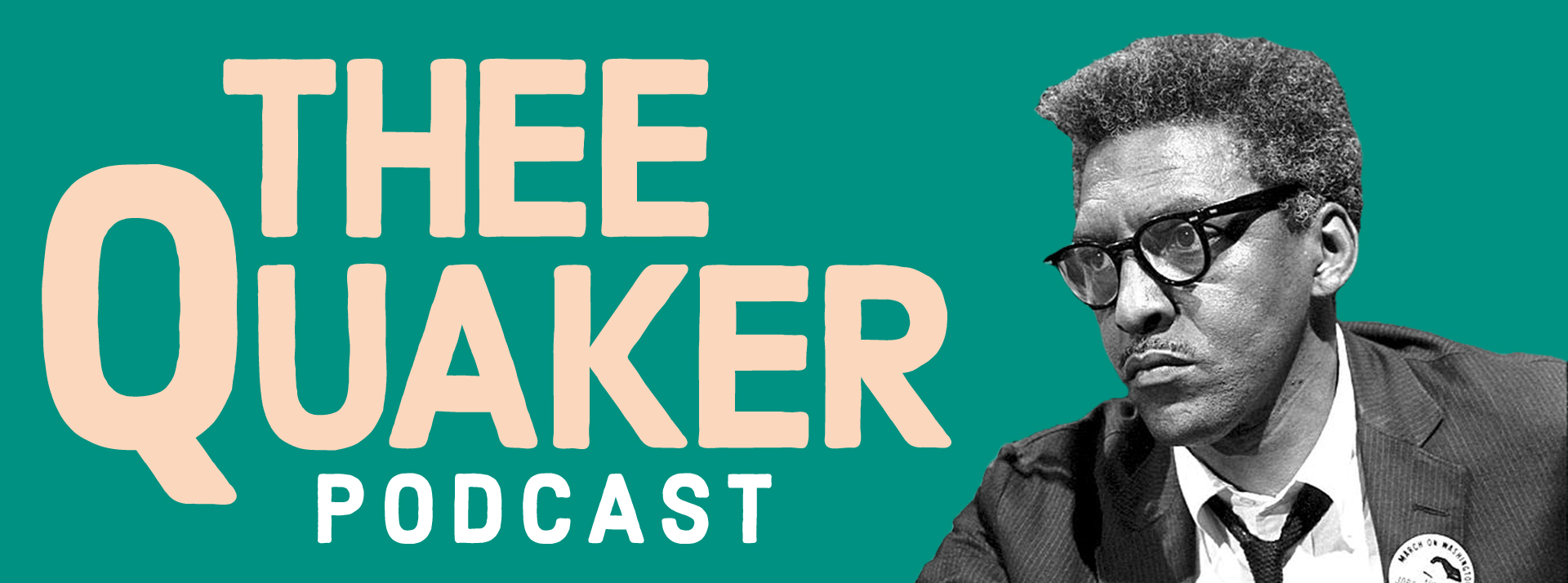

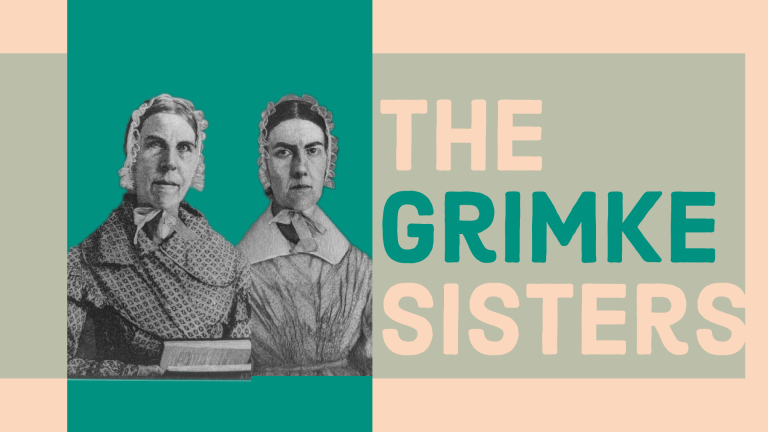
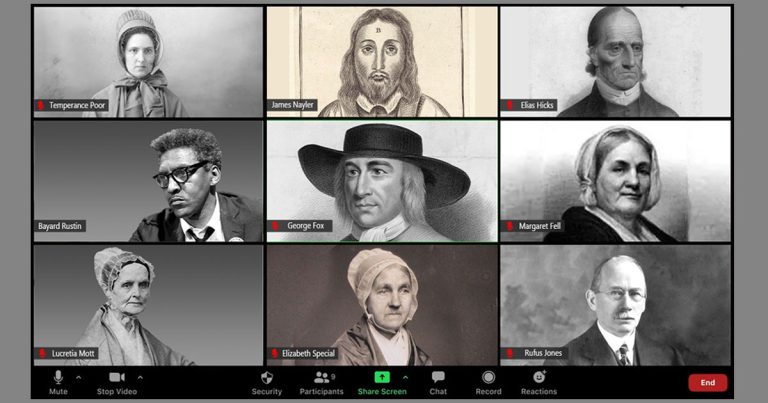
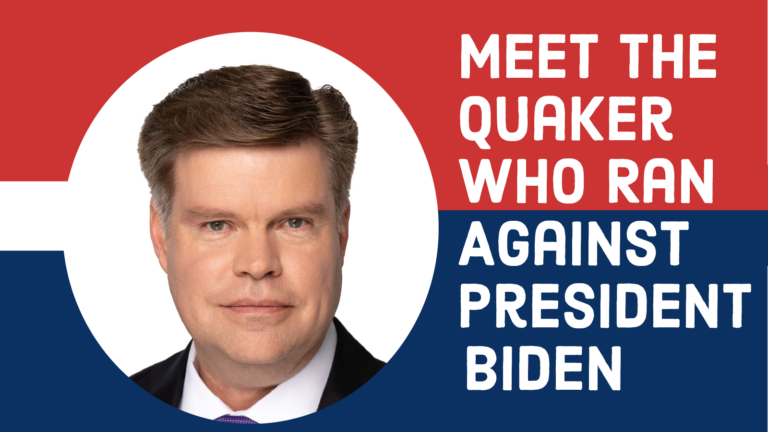
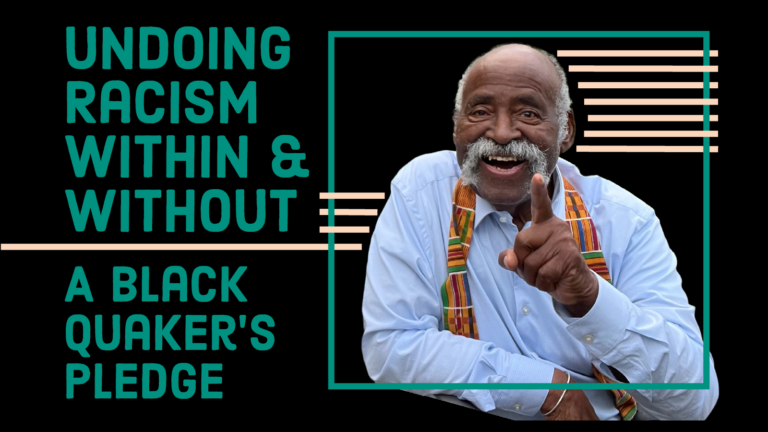
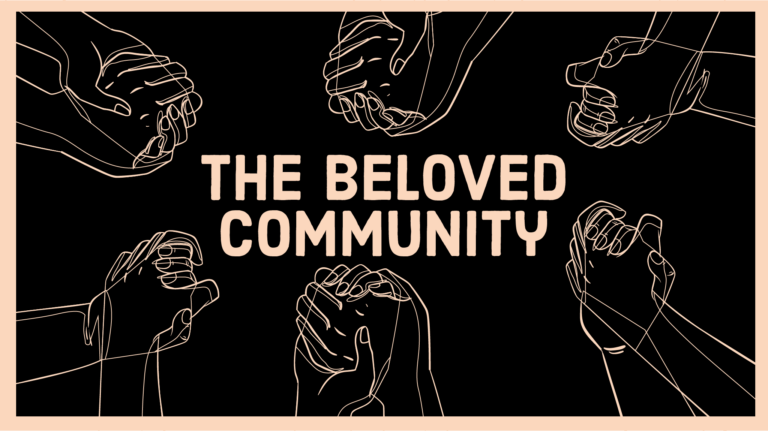
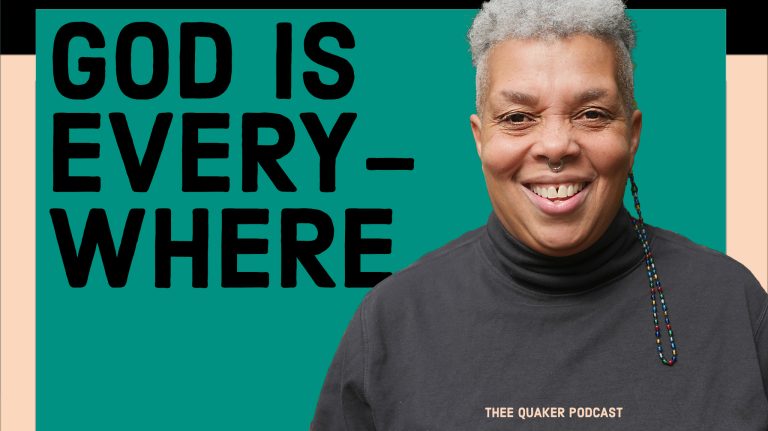
Truly wonderful to hear more about this long hard journey from vision to creation.
Yes to Way Opens!